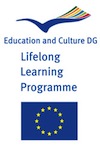What is EQF?
EQF for the Commission is a "translation device" that will enable qualifications and national qualification frameworks to relate and communicate to each other. It will facilitate the transfer, transparency and recognition of qualifications.
EQF is a set of common reference points. Eight reference levels have been identified covering higher education and vocational education and training (VET). Each of these levels involves a description of what is distinctive about qualifications classified at that level. The Working Group initially proposed three descriptors: knowledge, skills, and personal and professional competence (described as autonomy and responsibility, learning competence, communication and social competence, professional and vocational competence). On the basis of the results of the consultation and of discussions in Budapest, the Commission decided to reduce the number of descriptors to just three: knowledge, skills and competences (limited to autonomy and responsibility).
EQF is based on learning outcomes, regardless of the system or context where a qualification is acquired. This supports the ongoing efforts to reform education and training systems. It makes concrete the shift from a traditional educational approach based on inputs to the learning process (programmes, contents, teaching, length of programmes, type of institution) to an approach based on what an individual knows, understands and is able to do at the end a learning process - the output or outcome. The Working group proposed the following definition of "learning outcomes": "the set of knowledge, skills and/or competences an individual has acquired and/or is able to demonstrate after completion of a learning process. Learning outcomes are statements of what a learner is expected to know, understand and/or be able to do at the end of a period of learning". Shifting the focus to learning outcomes allows a better match with labour market needs, facilitates validation of non formal and informal learning, and facilitates mobility.
EQF does not replace national or sectoral qualifications frameworks. It does not tend to a harmonisation of different national systems. Its role is not to create or promote the creation of new qualifications.
Documents:
"Towards a European Qualifications Framework for Lifelong Learning", presentation by Jens Bjornavold, CEDEFOP, 2005.
Commission Staff Working Document "Towards a European Qualifications Framework for Lifelong Learning" on 8 July 2005.


.png)
